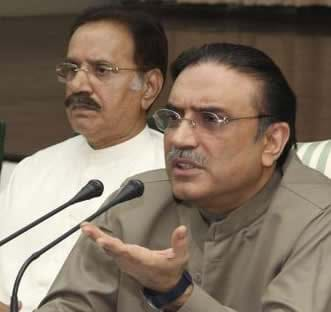While there are so many issues that will make a Ghanaian abroad worry of the political landscape of Ghana, it is also rewarding that Ghana is taking a very positive stride in making the economy of Ghana better. I always argue that the Kuffour administration has been too slow in moving Ghana forward. Certainly the current economic trend in Ghana was not started by the Kuffour administration. In as much as you may hate the Rawlings administration, they need to be credited with the economic foundation they started before they were booted out of office. The economic face of Ghana began to shine in the eyes of western countries when Rawlings was still in power. The platform or the foundation is gradually being built. Our traveling president has not done badly. While I believe he could have done better, we need a leader who can accelerate the progress of democracy and provide political stability and economic growth to support Ghana future.
Since 1999, I have been passively involved in the politics of Ghana. It is sad to say though that, our politicians (leaders) in most cases do not even have a plan that will cause the desired changes. Sitting down with some of our ministers will not surprise you and at times one doubts the rationale behind putting some of these people to the position they occupy. At least we all remember Mallam Issah (his vetting, becoming minister and then going to jail). I remember a meeting at one of the ministries where a director refused a free professional service from a professional Ghanaian group based in the USA. The simple reason was that they will prevent them from their corrupt activities. The action of Mr. Kyeremateng who was then the Ghana Ambassador to the US and present at the meeting is the reason why I am writing this.
This is how it happened. In 2003, a group of African American business leaders (from the US National Black Chamber of Commerce) were in Ghana for discussions with the government and the private sector for business opportunities and collaborations. At the ministry of Road and Transport, I did ask the minister (then the famous Dr. Anane) and his people why we get such a bad deal from foreign contractors when it comes to the design and construction of our roads. I told them these roads will not pass the safety requirements in their various countries and hence our engineers should not sign off on them (may be this is where the 10% comes in). I then proposed that, as a Civil Engineer, I will put together a professional group that will come in at least once a year (free) to help them look at projects, evaluate clients, and even review bid documents. Mentioning bid documents was my downfall. Instantly, one of the directors stood up and said they “do have the technical men on the ground” and hence such a support will not be necessary. That was a blow to my stomach and obviously to Mr. Kyeremateng’s also.
My Kyeremateng who was present at the meeting instantly questioned the director’s intentions since what I was proposing was free service and may potentially be a quality service. Subsequently after that Mr. Kyeramateng and I have had a few discussions on various subjects and in most of these discussions, he has been very persistent on good ideas and technology that will help Ghana. Frankly, my interactions with Mr. Kyeremateng gives me more hope that one day, we will come out of this economic mess. We need a leader who is not going to focus on finding solutions only from within but will be willing to look outside. Look at the new and up coming leaders of today, China, India, etc. They are all piggy backing on the United States and other nations to advance their nations. While we are producing many graduates, we need to have a strong employment base that will employ our people. Ghana needs to turn around and look at the value of technology and how it can support the nation. With my basic interaction with Mr. Kyeramateng, I am convinced that his attitude toward job creation and the use of technology is the future for Ghana.
Mr. Allan Kyeremateng, Mr. Kwadwo Baah Wiredu, Dr. Osei Darkwa of Ghana Telecom University, and many more are the kind of leaders we need in Ghana.
Source: ghanaweb







